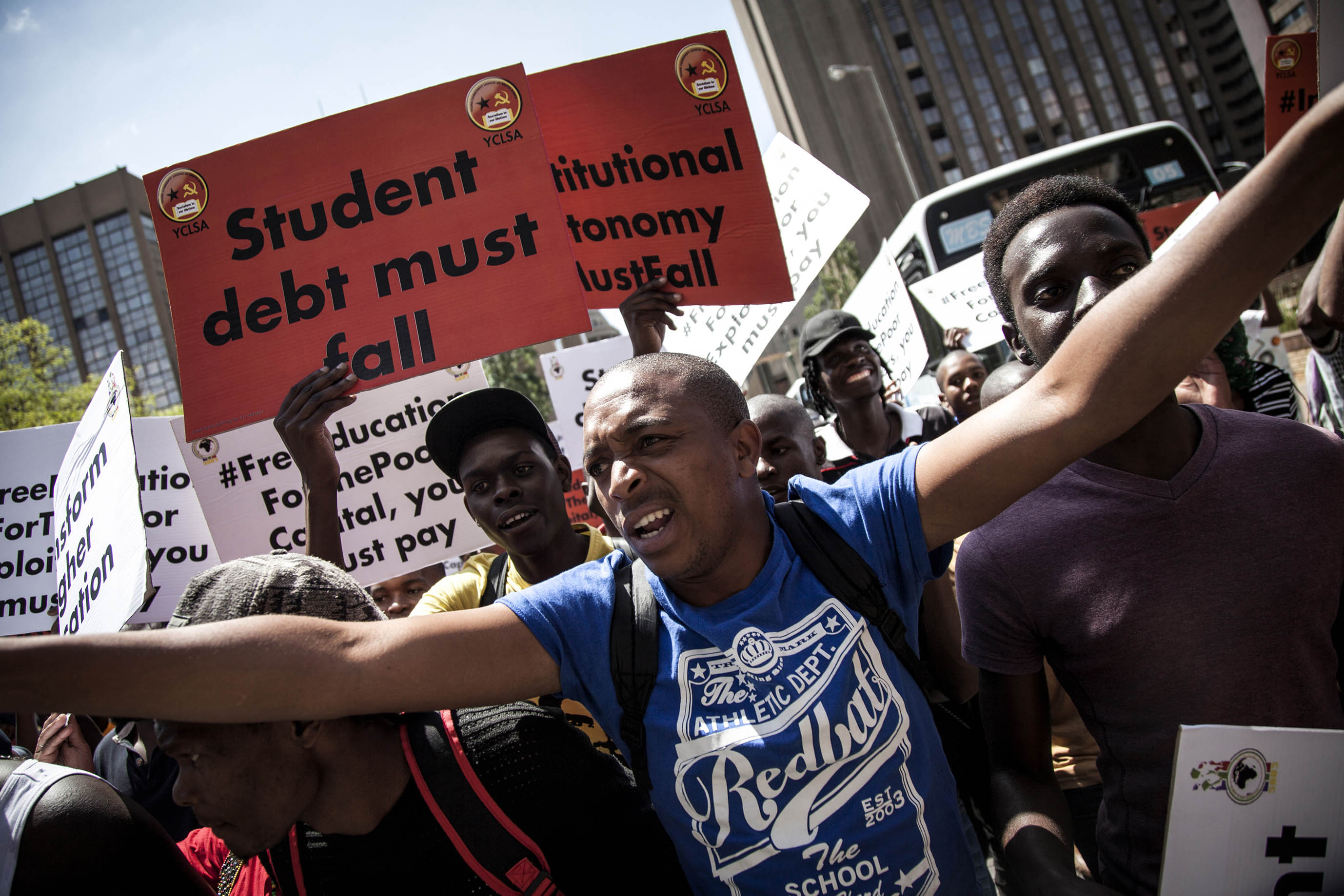United front? The mass groundswell of activism that led to students across the country marching to demand free tertiary education shows signs of petering out and splintering.
South Africa’s largest student movement since the fall of apartheid, #FeesMustFall, is being held back by the shifting priorities of changing student leadership at universities across the country, activists have warned.
The Democratic Alliance Student Organisation (Daso) has taken control of key institutions that were strongholds for the #FeesMustFall movement, and has chosen to fight for free education on its own terms — vilifying the movement’s leaders that have emerged since 2015.
“We don’t believe that the manner in which the #FeesMustFall movement’s ideals and campaigns and objectives were being fought was necessarily honest, or that it’s designed with the best interests of students at heart,” Daso president Yusuf Cassim told the Mail & Guardian.
“Many of those that were leading the aspects of the [#FeesMustFall] movement were compromised to begin with. That’s why they would campaign for shutdowns in 2015 and campaign for the ANC in 2016,” Cassim added.
What culminated in a consolidated national movement that brought tertiary education to a standstill by 2015 is now threatening to fizzle out into isolated campaigning for specific demands at each institution. This has been demonstrated at the University of the Witwatersrand and the University of Cape Town during 2017.
Programmes adopted by previous student representative councils (SRCs) are being chucked out and replaced by political party objectives, similar to what happens when a new government takes over.
At Wits, the Economic Freedom Fighters Student Command (EFFSC) has taken control of the SRC, which was previously led by the ANC-aligned Progressive Youth Alliance (PYA), and immediately adopted a confrontational posture towards the outgoing PYA leadership.
“It’s very difficult to maintain consistency,” former Wits SRC secretary general Fasiha Hassan told the M&G this week.
“Unlike us [the PYA-dominated SRC], there’s no institutional memory [in the new EFFSC-dominated SRC]. We know how to deal with residences, fees — and that’s something they don’t have. We can’t force them to seek our guidance, but we haven’t closed the door to them.”
Shortly after his election, new Wits SRC president Oreditetse Masebe proclaimed: “I can honestly say to you now that there’s a lot of division in terms of the direction the student body must take. The student body is highly divided and agitated. And we know who are those responsible for those divisions.”
He appeared to be referring to the PYA’s intention to stop classes at Wits. The new SRC called off the shutdown the night before and Hassan believes this was the EFF’s first reality check.
“There’s an interesting dynamic. The EFF has largely been a radical voice in the student movement. In their election campaign, they spoke about the shutdown but then cancelled it after getting emails from the university management. The EFF is finally in the governance space, so it’s easy to talk hard politics but very different to practise it,” Hassan said.
At UCT, the Daso-led SRC was being taken on a parliamentary tour on November 2 while protesting students were shot at with rubber bullets by police during a campus shutdown. The DA took control of the university from the EFF this year and immediately started implementing its own programme.
“We don’t agree with #FeesMustFall’s shutdowns. We always believe this is a fight that must be taken to where it belongs, the government, and the final solution will be found at the ballot box, not through the shutdown of institutions,” Cassim said.
A former EFF SRC member at UCT, Sinawo Thambo, said the election of Daso to the new SRC shifted the ideology of the free-education protests.
“Once we left office, we all knew what Daso being in power meant for our demands and progress. We have completely different policy outlooks and objectives.
“Our demand for a 0% increment based on the principle of supporting free education will be completely trumped by Daso’s sensibility to rationalising the university’s claimed constraints — not understanding that a particular level of intensity is required to push the institution to meet demands,” Thambo said.

[The South African Union of Students marched to demand free education (John Wessels, AFP)]
But national bodies such as the South African Students Congress and the South African Union of Students have been trying to keep the cause united. Hassan, who is also secretary general of the latter union, said this was part of their supportive role.
“We fight so that the right structures are in place and create policies on a national level.”
But she admits that conflicting ideologies have scuppered attempts to reach agreement on strategies.
“It’s often easier to meet with EFF and Pasma [the Pan Africanist Student Movement of Azania] because the underlying ideologies are similar. Especially once they realise it’s not a partisan issue. With Daso it’s much more difficult because there is more fear,” Hassan said.